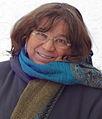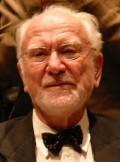Planning worship?
Check out our sister site, ZeteoSearch.org,
for 20+ additional resources related to your search.
- |
User Links
Person Results
Thomas Jarman
1776 - 1861 Composer of "LYNGHAM" in Trinity Psalter Hymnal Thomas Jarman was born on 21st December 1776 in Clipston, a small village near the northern border of the County of Northampton. His father was not only a Baptist lay preacher, but also a tailor, and Thomas was brought up in the same trade, although his brother, John, followed his father’s calling to become a minister.
His natural taste for music, however, considerably interfered with his work, and he was frequently reduced to dire straits, from which only the extreme liberality of his publishers relieved him. He was a man of fine, commanding presence, but self-willed, and endowed with a considerable gift of irony, as choirs frequently found to their cost. Weston quotes from Kant that Jarman neglected his work and ‘this kept him poor and soured his temper’.
He joined the choir of the Baptist chapel in his native village when quite a youth, and soon became the choirmaster there. He adopted music as a profession (with occasional returns to his old trade), and was engaged as teacher of harmony and singing in many of the neighbouring villages. He was a successful choir-trainer, spending several years at Leamington, and conducted concerts as well as services, for which he was ‘constantly composing works’. The village choir festival held under his direction at Naseby, in 1837, is said to have been the talk of the district for long after. He spent some six or seven years at Leamington, during which time he enjoyed the friendship of C. Rider, a wealthy Methodist who did much good for the psalmody of Lancashire and elsewhere some fifty or sixty years ago.
Jarman published an enormous quantity of music, including over six hundred hymn-tunes, besides anthems, services, and similar pieces.
Amongst his many anthems written for special occasions there is one for the opening of the new Baptist chapel at Clipston. Another is a MAGNIFICAT for Dr Marsh's Episcopal chapel at Leamington, where Thomas Jarman was called to assist the quire in their study and performance of psalmody.
Thomas Jarman lived to the good old age of eighty-five, dying in 1861, and lies buried in the graveyard attached to the Baptist chapel at Clipston in Northants.
--immanuelsground.com/composers/ (excerpts)
Thomas Jarman
Tony Alonso
b. 1980 Person Name: TA Composer of "[Canten al Señor un cántico nuevo]" in Oramos Cantando = We Pray In Song Tony Alonso has published several collections of liturgical music and his music appears in many hymnals throughout the world. He has an Bachelor of Music degree from Northwestern University and a M.A. degree in theology from Loyola Marymount University.
Tony Alonso
Simei Monteiro

b. 1943 Arranger of "CANTAD AL SEÑOR" in Singing the Faith Simei Monteiro is a Brazilian poet, composer, translator, author and editor. She was Born in Belém, PA, Brazil in 1943. Her songs and translations appear in several hymn books and collections of sacred songs in Brazil, Latin America, USA, Europe, and Asia.
She has a degree in Portuguese, French Language and Literature, and a Degree in Artistic Education. She is interested in worship and the arts, and her book: The Song of Life, explores the relationship between Hymnody and Theology.
Until 2010, she was a missionary of The United Methodist Church, serving with the World Council of Churches (WCC), in Geneva, Switzerland, in the position of Worship Consultant.
Simei is married to a Methodist pastor and has two adult daughters, two granddaughters, and a grandson.
Simei Monteiro
Simei Monteiro
Timothy R. Smith
b. 1960 Person Name: Timothy R. Smith, b. 1960 Composer of "[Sing to the LORD, sing a new song]" in Glory and Praise (3rd. ed.)
Timothy R. Smith
Paul Manz

1919 - 2009 Composer of "[Sing a new song to the Lord]" in Sing to the Lord Paul Manz (May 10, 1919 – October 28, 2009), was an American composer for choir and organ. His most famous choral work is the Advent motet "E'en So, Lord Jesus, Quickly Come", which has been performed at the Festival of Nine Lessons and Carols at King's College, Cambridge, though its broadcast by the neighbouring Choir of St John's College, Cambridge, in its Advent Carol Service precipitated its popularity.
His most famous organ works are his volumes of neo-Baroque chorale preludes and partitas. Paul Manz long served the church as recitalist, composer, teacher and leader in worship. He was Cantor Emeritus at the Evangelical Lutheran Church of Saint Luke, Chicago, Illinois; as well as Cantor Emeritus of Mount Olive Lutheran Church in Minneapolis, Minnesota. He was the director of the newly established Paul Manz Institute of Church Music, and was Professor Emeritus of Church Music at Christ Seminary Seminex at the Lutheran School of Theology at Chicago.
Paul Otto Manz was born to Otto and Hulda (Jeske) Manz in Cleveland, Ohio. Trained as an educator at Concordia Teacher's College in River Forest, Illinois (now Concordia University Chicago ) he earned a Master's Degree in Music at Northwestern University.
A Fulbright grant enabled him to study with Flor Peeters in Belgium and Helmut Walcha in Germany. The Belgian government invited him to be the official United States representative in ceremonies honoring Flor Peeters on his 80th birthday and his 60th year as titular organist of the Cathedral of Saint Rombout in Mechelen, Belgium. At that time, Flor Peeters referred to his former student as ‘my spiritual son.’
Paul Manz concertized extensively in North America. He appeared at Lincoln Center in New York City, with the National Symphony Orchestra, under conductor Geoffrey Simon, at the Kennedy Center in Washington, D.C., with the Chicago Symphony Orchestra at Orchestra Hall and with the Minnesota Orchestra under the direction of Charles Dutoit, Leonard Slatkin, and Henry Charles Smith. In addition, he played recitals in churches and cathedrals here and abroad. He was in great demand for his hymn festivals, which are his legacy as a church musician. He conducted many organ clinics, participated in liturgical seminars and appeared as lecturer and recitalist at the regional and national conventions of the American Guild of Organists.
The esteem and respect with which Paul Manz is regarded can be seen in the many honors he received. He was twice named one of the “Ten Most Influential Lutherans,” served as National Councilor of the American Guild of Organists and is listed as one of the “101 Most Notable Organists of the 20th Century.”[6] He was the recipient of many honorary doctorates and awards. Northwestern University, his alma mater, presented him with the prestigious “Alumni Merit Award;.” The Lutheran School of Theology at Chicago presented him with the distinguished "Confessor of Christ Award"; The Chicago Bible Society presented him with the “Gutenberg Award; and the Lutheran Institute of Washington, DC honored him with the first “Wittenberg Arts Award.” At a convention of the Association of Lutheran Church Musicians, his colleagues honored him for his work in the church. A large gathering in Minneapolis, Minnesota held a “Paul Manz Celebration: Honoring the Life of a Church Musician” where substantial gifts were given to the Ruth and Paul Manz Scholarship for Church Musicians.
Trinity Seminary of Columbus, Ohio bestowed the “Joseph Sittler Award for Theological Leadership” and among his many honorary doctorates is the Doctor of Sacred Music degree from Valparaiso University, and most recently, the Doctor of Music degree from St. Olaf College, Northfield, Minnesota.
As a performer, Manz was most famous for his celebrated hymn festivals. Instead of playing traditional organ recitals, Manz would generally lead a "festival" of hymns from the organ, in which he introduced each hymn with one of his famously creative organ improvisations based on the hymn tune in question. The congregation would then sing the hymn with his accompaniment. Sometimes he would play an improvisation between each sung stanza, as with his well-known variations on the tune, St. Anne, sung to the Isaac Watts text "Oh God, Our Help in Ages Past" with which he would traditionally end each festival. Many volumes of these improvisations have been written out and published and are played by church organists throughout the world.
His musical compositions are internationally known. His organ works are extensively used in worship services, recitals and in teaching. His choral music is widely used by church and college choirs here and abroad. His motet, "E’en So, Lord Jesus, Quickly Come" is regarded as a classic and has been frequently recorded. His life and works are the subject of a doctoral dissertation which details his career spanning more than fifty years and analyzes his organ works.
--en.wikipedia.org
Paul Manz
Daniel Forget
b. 1956 Person Name: Daniel Forget, 1956- Translator (French) of "Oh sing to our God" in The Book of Praise
Daniel Forget
Linda B. Hansen
Author of "Sing to the Lord" in The United Methodist Hymnal Music Supplement II
Linda B. Hansen
George Lockwood
b. 1946 Person Name: George Lockwood, b. 1946 Translator of "Sing a New Song to the Lord (Un Nuevo Canto al Señor)" in Oramos Cantando = We Pray In Song Rev. George Lockwood was born in 1946 and has been a missionary to Costa Rica. He has pastored Spanish-speaking congregations in both Arizona and California and served on the editorial committee for the Methodist hymnal supplement Celebremos II. In addition, Lockwood has traveled throughout Central and South America interviewing church musicians and gathering new hymns from both Spanish and Portuguese cultures which he then presents at conferences and workshops.
The Presbyterian Hymnal Companion, 1993
George Lockwood


 My Starred Hymns
My Starred Hymns


